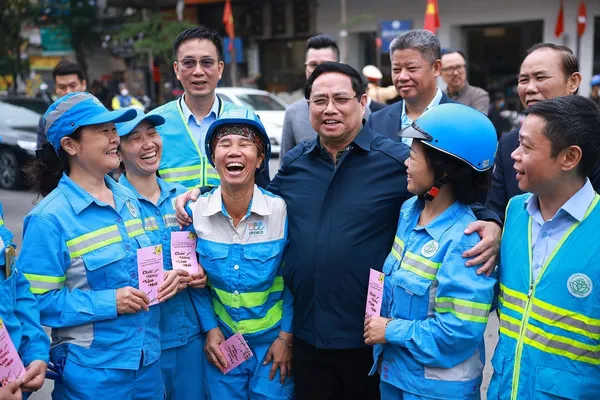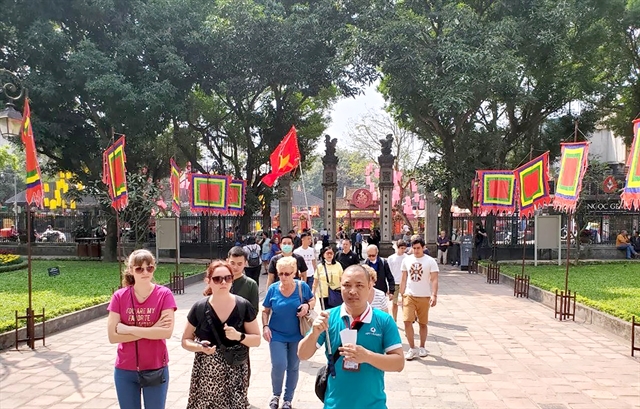 Society
Society

Tipping is not compulsory in Việt Nam and only tends to happen at high-end venues.

|
| Tourists visit Văn Miếu-Quốc Tử Giám (Temple of Literature Complex) in Hà Nội. — VNA/VNS Photo |
HÀ NỘI — Tipping is not a part of Vietnamese culture, but it is no longer strange to many Vietnamese as tourism develops.
Recently, Phú Quốc Professional Association of Tour Guides in Kiên Giang Province sent a notice to its members, which says that tour guides who are members of the association can collect tips from travellers to Phú Quốc from May 15.
The gratuity is VNĐ25,000 (over US$1) per traveller per day for Vietnamese tourists, $2 per for Asian travellers and $4 for other foreign visitors.
Tipping is not compulsory in Việt Nam and only happens at high-end venues.
In some cases, travel companies may have their own rules about tipping. Tipping tour guides entirely depends on tourists.
The regulation in the notice has caused some controversy.
Nguyễn Phi Phong, an official from My Adventures (Mytour.vn), said he disagreed with the regulations on tip rates for tour guides, Vietnamplus online newspaper reported.
Phong believes it is unreasonable to boost travel demand when tourism activities have just been fully reopened from March 15, a milestone for Việt Nam’s tourism industry.
He is concerned that if tip collection is implemented in Phú Quốc, tourists may think that tipping would roll out in other destinations in Việt Nam, leading to higher costs for a long trip.
“There is no rule that requires travellers to tip tour guides. If tourists ask for it, travel firms only suggest a tip level,” Phong said.
In tourist cities like Hà Nội, HCM City and Đà Nẵng, tipping is more common.
Nghiêm Thúy Hà, CEO of Aadasia Group Tourism and Trading Company, was surprised at the move, adding that it was unreasonable.
Hà said it would make customers uncomfortable with the different tipping between international and domestic visitors, although they are on the same trip and receive the same services.
In the difficult economic situation due to the pandemic and conflict in the world, everyone has to tighten their spending, so it will be difficult for tourists to accept the extra mandatory tip, Hà said.
Some travel firms collect tips in advance and deliver them to tour guides, while others don’t mention a gratuity when negotiating with partners.
An official from a Hà Nội tourism company warned that if all tourism firms collect tips in advance, their tour guides will not try their best to serve tourists because even if they work better than other tour guides, they already receive the same tips.
For domestic tours, in general, travel firms don’t mention tips when designing tours because tour guides and travellers discuss the tips themselves.
As for outbound tours, some travel firms collect money for tips from customers when they pay tour fees, $3-6 or $10, depending on the destinations, such as Asia, Europe or the US. If travel firms don’t collect money for tips in advance, they remind travellers that the tour fees don’t include tips, and when the tours finish, tour guides can collect tips openly.
People believe the document released by Phú Quốc Professional Association of Tour Guides is an internal document valid for the association’s members. But this move may affect tourism activities nationwide.
Trương Công Tâm told Người Lao Động (The Labourer) that the notice aimed to collect people’s opinions on this issue and to protect tour guides and travellers.
The fixed and public announcement about tips to tour guides would help them do their best work, improve service quality, and avoid inconveniences for tourists.
Tâm affirmed that this is the rule set up by the association and applied to its members only. — VNS




